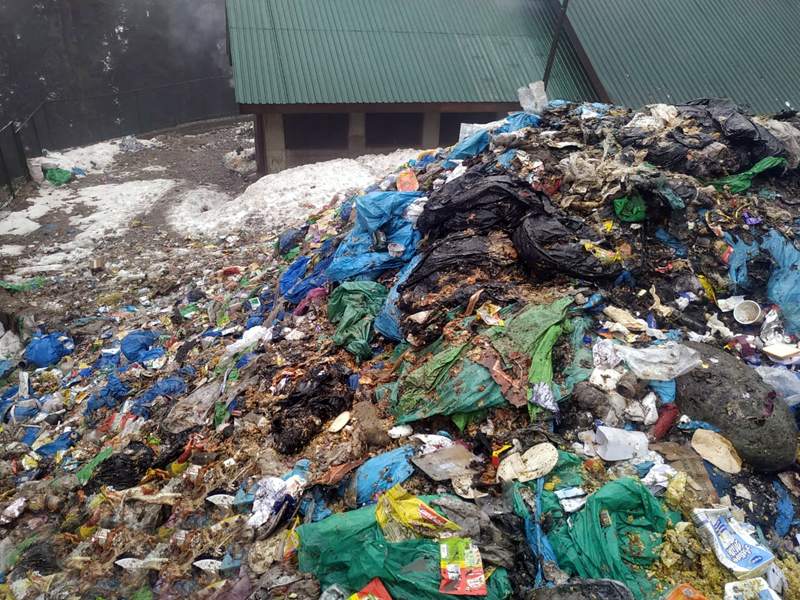More than half of the waste produced in the popular tourist destination of Pahalgam in South Kashmir remains untreated due to lack of adequate waste treatment facilities, posing a significant environmental threat to this ecologically sensitive area. Local authorities claim they are actively exploring options to address this issue. However, the impact of solid waste on the environment and ecology cannot be underestimated. With rapid population growth and urbanisation, managing solid waste has become an increasingly pressing challenge. The consequences of improper waste disposal are far-reaching. Firstly, it leads to air pollution when waste is burned, releasing harmful pollutants and toxins, posing risks to both human and wildlife health. Secondly, inadequate waste management practices contribute to water pollution, as waste is often dumped in open landfills or rivers, contaminating water sources and disrupting aquatic ecosystems. Thirdly, landfills and dumpsites that are not properly managed contaminate the soil with hazardous chemicals and heavy metals, harming plant life and potentially affecting animals and humans. Poor waste management also increases the risk of diseases transmitted by vectors like mosquitoes and rats, impacting human and ecological health. Furthermore, landfills emit methane, a potent greenhouse gas that contributes to climate change. Releasing untreated sewage into different water bodies is the most concerning aspect, risking marine and human life. The loss of biodiversity, aesthetic issues, and reduced quality of life due to waste-related problems are notable concerns.
Solid waste has the potential to be a valuable resource for Municipal Corporations and local Governments when managed efficiently and sustainably. Different municipalities in other parts of the country have transformed solid waste into a source of revenue and environmental benefit. They have implemented waste-to-energy projects where solid waste is converted into electricity or heat, reducing waste while generating income from energy sales. Lucrative recycling programmes are already in place, collecting and processing recyclable materials for sale to industries that use them as raw materials. Composting organic waste creates valuable compost products to generate additional income. Waste collection fees, public-private partnerships, resource recovery facilities, innovative technologies, waste tourism, green certification, waste consulting services, waste-to-product initiatives, and carbon credits are additional strategies adapted for generating revenue from waste management efforts. These approaches not only contribute to waste reduction but also support environmental sustainability and financial viability for Municipalities and local Governments.
Cities, including popular tourist destinations like Pahalgam in Jammu and Kashmir, are constantly expanding. Civic amenities must be well-planned to accommodate this growth. Unfortunately, our city and town planners, along with municipal authorities, have not kept up with the increasing tourist footfall. The municipalities in tourist destinations serve as the faces of their respective cities. A memorable experience for tourists can lead to future visits and positive word-of-mouth promotion. However, it appears that this vision remains far from reality. Despite ample funds being at the disposal of the relevant departments, there is a noticeable lack of planning and action when it comes to executing projects aimed at enhancing the tourist experience. Both solid waste and sewage levels have nearly doubled the installed capacity, yet there is no practical plan in place. Instead, concerned departments seem to be caught up in lengthy consultations, which won’t offer immediate solutions. It’s imperative for the respective district administration, in coordination with the Divisional Commissioner’s office, to step in and address this issue decisively. Concrete steps must be taken, including assigning responsibilities to departments, preparing detailed project reports (DPRs), allocating funds, and initiating work on an urgent basis. Municipalities in other parts of India have successfully transformed solid and sewage waste into valuable resources, so there’s no reason why similar measures can’t be adopted in Jammu and Kashmir. Half-hearted efforts won’t yield the desired results, and there can be no compromise on environmental and public health risks. What’s urgently needed is meticulous planning and immediate implementation to meet the growing demands of these areas.


